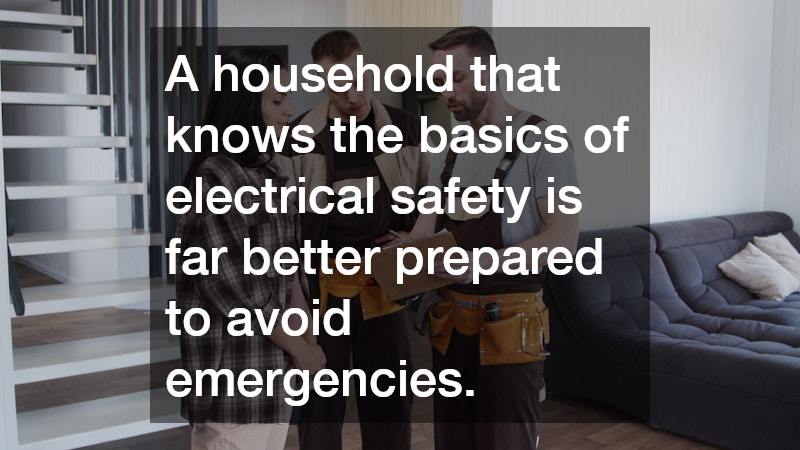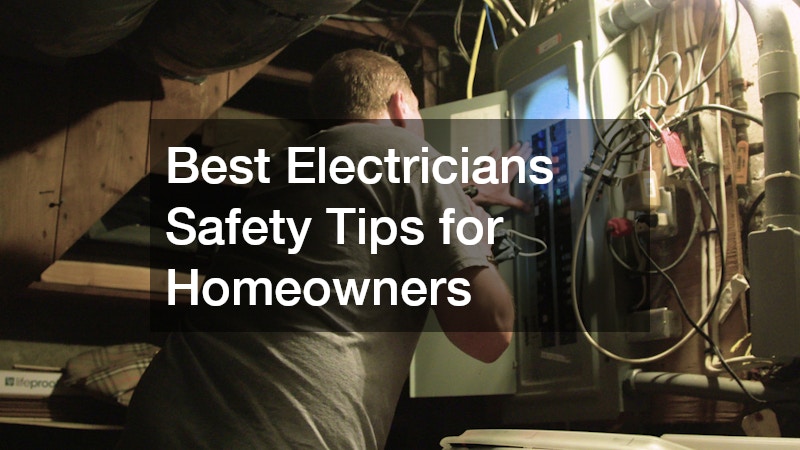The best electricians always stress the importance of electrical safety in the home, and for good reason. Electrical systems power your lights, appliances and devices, but they also carry risks when not handled correctly.
For homeowners, understanding the basics of electrical safety is just as important as hiring professionals when needed. By following expert advice, you can keep your household safe, prevent property damage and avoid dangerous situations.
Whether you are doing minor home improvements or simply trying to avoid everyday hazards, these tips can help you stay safe and make smart decisions when it comes to electricity.
Know Your Limits with DIY
While it may be tempting to tackle a faulty light switch or install a ceiling fan yourself, doing electrical work without proper training can be dangerous. Even seemingly simple tasks can carry hidden risks if you do not understand how circuits work or how to isolate power safely. The best electricians agree that unlicensed electrical work is not only unsafe, but also illegal in most parts of Australia.
When electrical work is done incorrectly, it can lead to electric shocks, fire hazards or damage to your home’s system. It is best to leave any repairs, upgrades or installations to someone qualified and licensed. This ensures your work complies with local regulations and that your insurance remains valid in the event of an incident.
Be Cautious with Power Boards and Extension Leads
In many homes, especially older ones, there are often not enough power outlets for modern appliances and gadgets. As a result, people turn to power boards and extension leads to meet their needs. However, overloading these can create a serious fire hazard. Plugging too many devices into one outlet can cause overheating, especially if high-wattage appliances are involved.
The safest approach is to avoid using multiple high-energy devices on one board. You should also look for power boards with built-in overload protection. Extension leads should never be daisy-chained or used permanently as a substitute for proper outlets. If you find yourself relying heavily on power boards, it might be time to ask a licensed electrician to install extra outlets.
Install and Test Safety Switches
One of the most effective ways to protect your home from electrical hazards is with safety switches. These devices monitor the flow of electricity and quickly shut off power when a fault is detected. They are designed to prevent electric shock and can save lives in the event of an emergency.
If your home does not have safety switches installed, you should speak with an electrician about upgrading your switchboard. Even if your home has them, it is important to test them regularly. The best electricians recommend testing safety switches every three months. Simply press the test button to ensure they trip properly, then reset them. If the switch does not trip, contact a professional immediately.
Keep Cords and Appliances in Good Condition
Frayed wires, cracked plugs and damaged cords are not just signs of wear—they are safety hazards. Damaged electrical equipment can lead to short circuits or expose you to live currents. Always inspect appliances and cords before use and replace any that show signs of damage.
Cords should not be placed under rugs, run through doorways or pinched by furniture, as this can cause them to degrade over time. If you notice a smell of burning plastic or hear buzzing near an outlet or switch, turn off the power at the main board and call a licensed electrician. These signs can indicate serious faults that need immediate attention.
Use the Right Globes and Fixtures
Another tip from the best electricians is to always match light globes to the recommended wattage of your fixtures. Using a globe with too high a wattage can cause overheating and, in some cases, fires. Check the label on the fixture and use energy-efficient bulbs that produce less heat while still delivering the light you need.
If you are upgrading your lighting, consider using LED globes which are not only safer but also more cost-effective in the long run. They use less energy, last longer and operate at a cooler temperature than traditional incandescent bulbs.
Teach Household Members About Safety
Electricity is part of everyday life, but it is important that everyone in the home understands how to interact with it safely. Teach children not to play with power points, cords or appliances. Show family members how to turn off power at the switchboard in case of an emergency and make sure everyone knows where to find a torch or emergency light if the power goes out.
The best electricians often say that awareness is one of the most powerful tools in preventing accidents. A household that knows the basics of electrical safety is far better prepared to avoid emergencies.
When it comes to home safety, electricity should never be taken lightly. Listening to the best electricians and following their practical advice can help you create a safer environment for your family. While there is plenty you can do to maintain safe practices, some situations require professional intervention. Never hesitate to call a licensed electrician if you have doubts about your home’s electrical system.
Taking proactive steps now can prevent costly repairs, reduce risk and offer peace of mind. Make safety a priority in your home, and you will be better prepared for whatever the future brings.



